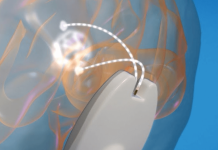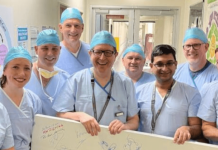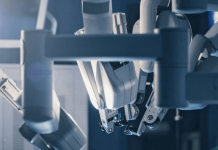In the world of medical technology, precision and speed remain paramount, especially in critical care. Dutch medtech enterprise, Sencilia, emerges as a promising player in advancing IV infusion therapy technology. By developing sensors that ensure accurate and timely medication delivery, they invest in safer treatment modalities for vulnerable patients. This funding round marks a significant step in scaling their innovation, reflecting an era where intelligent healthcare solutions address gaps within traditional practices.
Sencilia, spun off from the University of Groningen and founded in 2021, continues to gather momentum with recent investments from Future Tech Ventures (FTV) and imec.istart. The infusion sensor developed by Sencilia aims to refine the administration of low-volume infusions, such as those required for premature infants. Earlier industry reports highlighted the limitations of conventional infusion pumps, often plagued by delayed detection of anomalies. Sencilia’s solutions now promise real-time feedback, offering benefits previously unheard of within the standard medical protocols.
Related: Peerbridge Health closes $7m funding to support its Cor MDx cardiac wearable
Sencilia’s Rely-V sensor stands out due to its capacity for direct, physical measurements of intravenous flow, enhancing accuracy in dosage delivery. Unlike existing systems, which rely on indirect estimation, real-time anomaly detection within 30 seconds is achievable with their sensors. This advancement addresses a critical need in healthcare, where timeliness can significantly impact patient safety and outcome.
With newly acquired funding, Sencilia is preparing for a broader market launch by finalizing product design and establishing a quality management system. Engagements with hospitals such as UMCG and Erasmus MC will facilitate the collection of essential clinical data. These initiatives aim to align their infusion sensor with international regulatory standards and enhance its overall readiness.
Creating a robust team is a priority for the company as it hires a Chief Commercial Officer to navigate the expanding commercial landscape. The firm’s strategic location near medical institutions provides the advantage of clinical collaboration, encouraging interdisciplinary research and development.
Partnerships play a vital role, demonstrated in Sencilia’s collaboration on the ‘Rely-V’ R&D project with the University of Groningen. The collaboration has led to tangible outcomes, including performance validation in preclinical settings, thus underlining the sensor’s potential efficacy.
Global recognition of the Rely-V sensor technology is growing, with pilot projects underway in key European hospitals. As the clinical studies progress, this technology could see incorporation into various treatment protocols, potentially alleviating healthcare inefficiencies.
As healthcare continues to evolve with digital advancements, the role of precise infusion monitoring becomes increasingly relevant. Clinicians and institutions will likely embrace such innovations, reducing risks associated with traditional infusion methods. This development not only aims to benefit neonatal and pediatric sectors but extends its utility to broader clinical settings.




